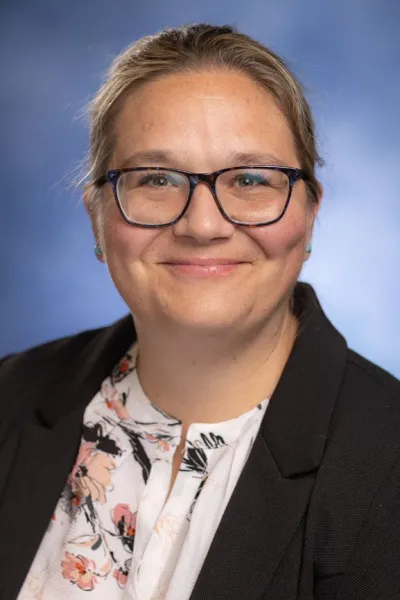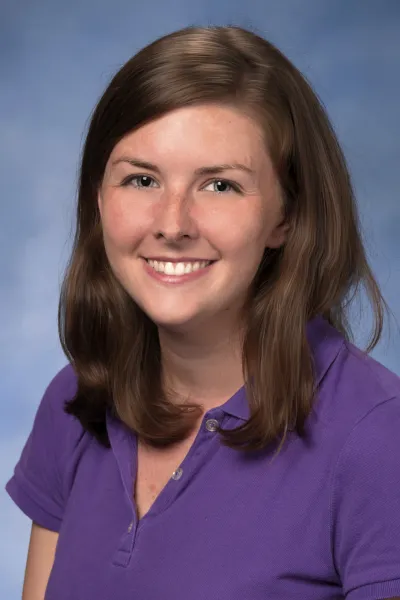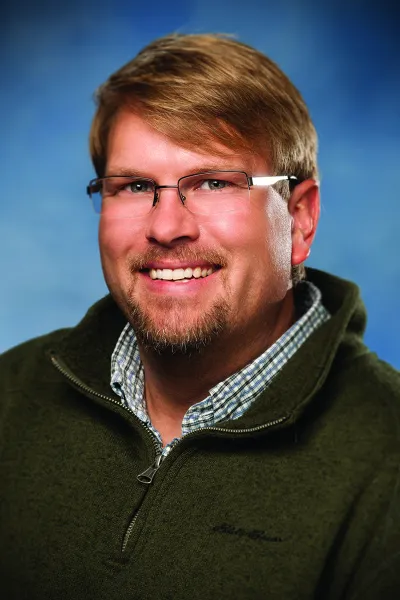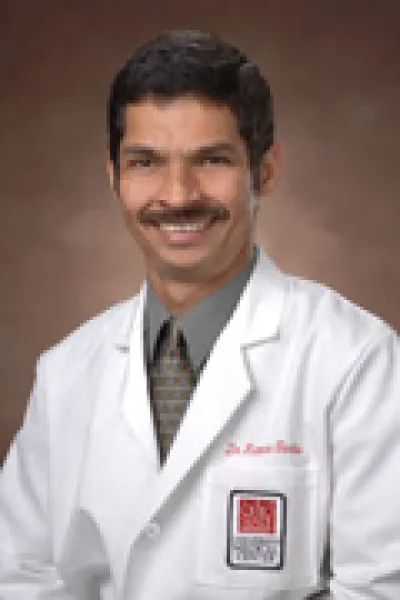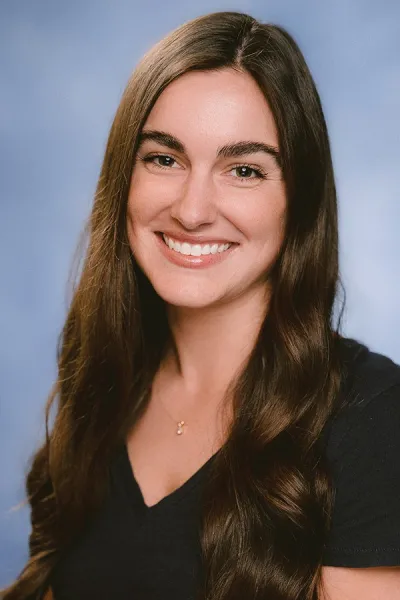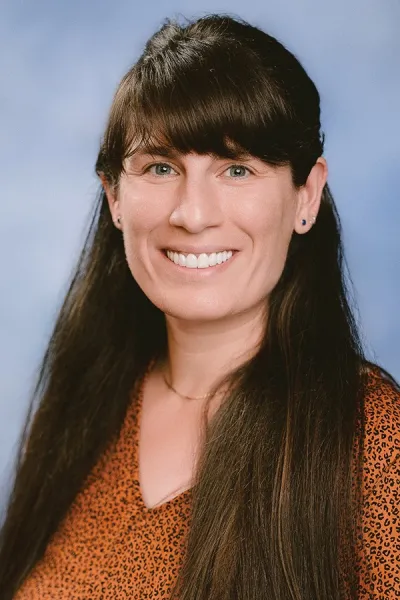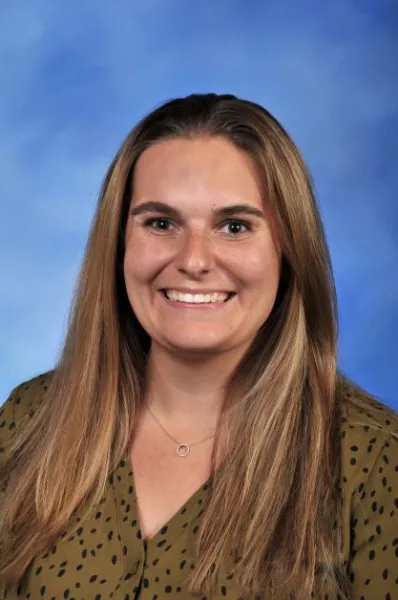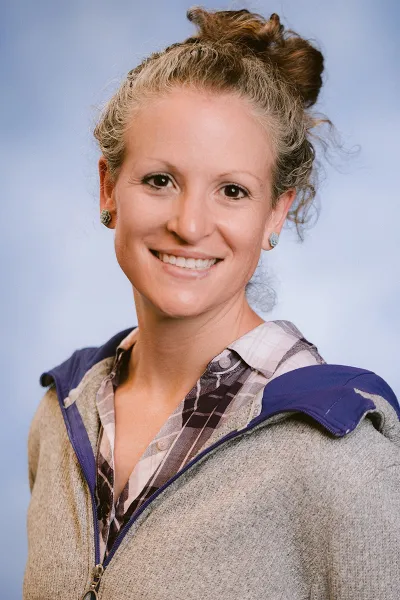Equine Medicine Residency
The three-year Equine Medicine Residency Program at The Ohio State University College of Veterinary Medicine provides intensive training in the principles and practices of internal medicine and an introduction to clinical research leading to a Master of Science degree. The Veterinary Medical Center (VMC) is a regional referral center with a diverse caseload offering residents a broad clinical education. Strong programs in Cardiology, Radiology, Oncology/Radiation Oncology, Ophthalmology, Dermatology, Emergency and Critical Care, Small Animal Internal Medicine, and Epidemiology complement our training program. Currently, three residents in Equine Internal Medicine share clinical duties and are encouraged to work together and learn from each other. Faculty members in Equine Internal Medicine are dedicated to providing strong leadership in a collegial, supportive environment. There is strong interaction between Equine Medicine and other equine services, including Equine Surgery, Equine Emergency and Critical Care, and Equine Ambulatory Medicine.
Additional Residency Resources learn more about our veterinary health system
Objectives
- Develop comprehensive, state-of-the-art expertise and clinical
proficiency in equine medicine; - Satisfy the criteria necessary to qualify for Board Certification, and
to prepare the resident for successful completion of the ACVIM Certification Examination. Board Certification during the third year of the program is expected; - Prepare for future career goals of teaching, clinical research,
scientific publication, or specialty practice; - Attain the Master of Science degree in a specific area of research
is optional but encouraged. - Publish at least 2 peer-reviewed manuscripts in highly respected journals of which 1 should be from a research project.
Prerequisites and Applications
- All potential residents must meet the minimum requirements and qualifications (see Residency Program Handbook, CVM Graduate Program Handbook and Graduate School Handbook.
- Applicants must be either U.S. citizens or permanent residents of the U.S. the Ohio State University cannot sponsor or process F, J, or H-1B visa applications for resident positions. We also cannot accept TN visas. Successful applicants must be available to report to The Ohio State University Department of Veterinary Clinical Sciences no later than the scheduled beginning of the program.
- Applicants must be graduates of an AVMA-recognized College or School of Veterinary Medicine and have completed a one-year rotating internship or acceptable equivalent clinical experience.
- All requirements must be met to hold and maintain a limited license to practice Veterinary medicine in the State of Ohio – click here for information on licensure requirements.
- Currently admission requirements include:
- a minimum 3.0 GPA for all undergraduate coursework
- a minimum 3.0 GPA for professional (veterinary degree) studies;
- a minimum 3.3 GPA for all graduate coursework;
Employment and Benefits
- Salary
- Health insurance
- Travel allowance
- Personal + Professional days leave (from policy)
- External consultation and employment
- Licensure
- Tuition Assistance
Orientation
During the first week at the commencement of the residency program, all incoming residents participate in a comprehensive orientation program (see to Residency Program Handbook) to introduce them to the department, college and university, to complete necessary documentation, and to facilitate integration into our program and activities
The Equine Medicine Service will provide new residents with the following information as part of the orientation process:
- Roster of equine medicine and surgery faculty, residents, and technicians.
- A description of the expectations for residents in our program. (see appendix of this document)
- Departmental Resident Performance Evaluation document
- Clinic Schedule for July 15 through December 31.
- Operative practice schedule (before Autumn Semester starts)
- Senior Student Orientation Handbook
- Options for a research advisor; description of the process of identifying an area of research focus and an advisor.
- A description of the operation of clinics including how cases are assigned, expectations for interactions with clients and referring veterinarians, and expectations for clinical teaching.
- Orientation to the emergency service, and a copy of the emergency call schedule. New residents will not take primary emergency call for a minimum of the first 30 days on clinics.
Advisors and Mentoring
Clinical Advisor
Each resident is assigned a clinical advisor at the beginning of the program. The advisor may be changed according to the individual needs and interests of the resident.
Academic/Research advisor
The principal academic advisor is decided after the area of research has been identified. We ask our residents to select an area of research in which one of the equine medicine faculty members or his/her collaborators are working. The options will be discussed within the first 60 days of the program and we would like a decision to be made in the fall of the resident’s first year.
Masters committee
For candidates choosing to enroll in Graduate School (Masters), an Advisory committee will be formed to provide advice on the development and implementation of a research project, and to work with the graduate student to ensure that the project is completed in a timely fashion. Typically, the Advisory committee serves as the Examination committee for the Masters defense. These committees must consist of at least 2 members of the graduate faculty.
Mentoring
Case management is carried out under the supervision of faculty clinicians.
Clinical Service Responsibilities
- The program is designed to provide advanced training in equine internal medicine. The resident spends approximately 105 weeks in medicine clinics during a 3-year period. Residents will be exposed to a wide range of medical problems of equids. Equine patients are referred to the VMC from Ohio and the surrounding states; we enjoy a large referral base. During the first 2 years of the program, faculty clinicians in medicine closely supervise the residents. Residents see patients and perform diagnostic procedures under the direct supervision of faculty clinicians. The faculty and residents will discuss all treatments and proposed diagnostic tests before implementation. Third year residents work somewhat more independently, as dictated by their progress in the training program.
- Residents interact on a daily basis, 7 days a week, with ACVIM boarded internists and frequently with Board certified specialists in surgery, dermatology, cardiology, neurology, radiology, anesthesiology, clinical pathology, anatomic pathology, critical care, oncology, radiation oncology and ophthalmology.
- Residents may make arrangements, when not scheduled in equine clinics, to spend time in other services such as cardiology, anesthesiology or clinical pathology.
- Rounds:
- All residents are expected to participate in daily rounds. Residents are expected to assist students in preparing plans for patient care and specifically to proof read all treatment and ICU orders.
- Generally, rounds begin at 9:00 am each weekday and at 8:30 on weekend days or holidays. The time for rounds may be changed at the discretion of the senior clinician. On regular working days, case transfers between services occur at 9:00 am, in the Large Animal ICU, where all services meet to start the day.
- Residents are expected to have looked at their patients before rounds each day and to know the status of each patient. Residents should focus on identifying problems in critical patients before rounds. Most services have afternoon rounds between 4:00 and 6:00 pm, or later as dictated by the day’s activities. Attendance at rounds is always mandatory unless prior arrangements have been made with the faculty on clinical service.
- Patient management and medical records:
- Residents are expected to be on the clinic floor (visible and engaged) at all times when patients are admitted or case workup is underway.
- A discharge summary (DS) must be written for all horses that are hospitalized. Residents will read and critique the drafts of all DS that are written by students. The faculty member on service will read the DS after the resident has scrutinized it. The resident is responsible for putting signed copies of the DS in the chart, for giving the client a copy of the DS, and for taking a copy of the RDVM DS to the Equine Center office to be faxed to the RDVM immediately after the horse leaves the hospital.
- Residents are responsible for writing a DS for horses that die in the VMC. A DS describing the hospital course should be written immediately after the horse dies. A second shorter DS can be written when results of the necropsy are available (usually about 4 weeks from the date of the necropsy). Necropsy reports should be appended to all such letters, and copies of the DS and the letter should be sent to the RDVM. Letters must be read and signed by the faculty member on the case.
- Residents are responsible for diagnosing their charts in a timely manner. Medical Records will send notices of charts that need to be diagnosed and signed.
- Estimates and charges:
- Residents will work with faculty clinicians to ensure that estimates are discussed in detail with clients, and that the estimate forms are properly filled out and signed.
- Residents will frequently review the charges on bills for all patients to which the resident has been assigned. Questionable charges should be discussed with the senior faculty member. Residents will review charges just prior to release of a patient, and clarify discrepancies with the faculty clinician on service.
- Communications:
- Residents should carefully maintain a communication log in each patient’s chart, recording the details of all discussions with the client or the RDVM.
- Residents should discuss with the faculty clinician on each case how client and RDVM communications will be handled. Usually, the resident will speak with the client daily, or every other day, and the faculty clinician will speak with the RDVM when the horse is hospitalized and intermittently thereafter as the condition of the patient and the desires of the RDVM dictate. Medication logs in the case record should be meticulously maintained.
- Emergency Duty: All residents participate in the equine emergency service, under the supervision of the equine emergency clinician. Generally, each resident is on emergency duty 2 to 4 days a week. On weekdays, emergency hours commence at 6:00 pm and end at 8:00 am the following morning. Emergency patients that arrive between 5:00 and 6:00 pm may be handled by the emergency service, as deemed reasonable by the faculty emergency clinician. On weekends and holidays, emergency duty shifts are 24 hours (8:00 am to 8:00 am). On weekday mornings, emergency patients are transferred to the most appropriate clinical service. Colic patients usually stay with the admitting resident, but may be transferred to a surgical or medical service for management if appropriate. Residents are expected to manage their emergency patients, with faculty supervision, until the next regular working day, when the emergency faculty on duty will arrange transfer to the appropriate clinical service. A schedule for emergency duty will be available when the resident is being oriented. New residents will be assigned to emergency duty with a more senior resident for a 4 to 6 week training period. During foaling season (March to June), both a medicine and a surgery resident may be assigned to each emergency shift, with one serving as the primary resident who is responsible for general emergencies such as colic, choke, laminitis, or upper airway obstruction. Medicine residents will handle neonatal emergencies, while surgical residents will handle patients requiring emergency surgery of all types. Residents are expected to be in the hospital or close enough to arrive within 15 minutes of receiving an emergency call. Residents will field calls from owners, trainers, caretakers and referring veterinarians. Residents are required to call the backup emergency clinician to inform him/her about an impending case. The backup clinician may elect to be present for the entire examination, may consult by phone, or may come in to assess the patient sometime during the work up. Residents are required to consult with faculty members about the management of all patients.
- Vacations: Residents will have 2 weeks of vacation annually. Vacation is to be taken during times when the resident is not assigned to clinic duty. Timing of vacations must be discussed with the resident’s clinical and academic advisors, must be approved by the section head, and the appropriate departmental and university leave forms must be filed.
- Residents will be given time to attend one professional meeting annually. The first year resident is expected to work in the clinic during the ACVIM Forum, but may attend another meeting. The second or third year residents will be allowed time to attend the ACVIM Forum.
- Holidays: The more junior resident is expected to work during the week of the ACVIM Forum and during the Thanksgiving weekend. The more junior resident will work during the 2 week holiday break (Christmas and New Years) unless other arrangements are agreed upon by the residents and faculty.
- Off clinics time: Residents will have approximately 14 weeks of scheduled off clinics time during the first year, 16 weeks during the second year and 18 weeks during the third year of the combined residency/graduate studies program. This off clinics time is essential for grant writing, course work, performing experiments, writing original manuscripts, as well as for working with faculty in other areas of the hospital. During off clinics assignments, residents are expected to be at work in the college, unless other arrangements have been made with the faculty supervisor and the section head. Note: personal and professional leave must be taken during off-clinic time.
Teaching Responsibilities
- Teaching responsibilities include clinical teaching of senior veterinary students assigned to the Equine Medicine or to the emergency service. Residents are expected to help students perform routine diagnostic and therapeutic techniques such as placing an IV catheter or performing peritoneal fluid collection. Residents will have many opportunities to cultivate their teaching skills, and acquiring these skills is an important aspect of the training program.
- Residents will lead informal discussions with students covering core material in equine medicine. These discussions are typically scheduled when time permits, and are more frequent in the winter months, when the caseload is lower.
- Residents are required to participate in teaching technical skills to junior veterinary students during laboratories (usually 2 four-hour laboratories/resident in both Autumn and Spring semesters).
- Interested residents will be given the opportunity to develop their didactic teaching skills by preparing and delivering selected formal classroom lectures for professional students.
Educational Opportunities
- Residents must complete 20 semester hours of graded course work and a minimum of 10 semester hours of non-graded coursework as part of the requirement of the Master of Science Program. The Department of Veterinary Clinical Sciences offers a rotating series of graduate level courses (Advances in Veterinary Internal Medicine and Surgery). Each course in the series is given once every 3 years, on a regular cycle, so that each resident is able to participate in every course. Courses are organized by body systems (eg. respiratory, gastrointestinal, cardiovascular, etc) or special topic (such as Research Methods and Critical Care for example) in a series of formal classes occupying 3 hours per week of classroom time (Wednesday 8:00 to 9:00 am and Thursday 7:00 to 9:00 am).
- Residents not enrolled in Graduate school are still required to participate in different courses provided by the program.
- Residents are also required to participate in a course on diseases of large animals, taught on Tuesdays at 8:00 am.This course usually follows a systems format, and topics are usually arranged to complement the concurrently offered graduate courses.
- Residents have the opportunity to participate in other book or journal clubs offered at the College of Veterinary Medicine, the Medical School, or allied colleges on the OSU campus.
- Attendance at one national meeting during the second 2 years of the program, preferably the ACVIM Forum, is encouraged.
Graduate Program
- see Residency Program Handbook and, CVM Graduate Program Handbook
- MS thesis or non-thesis research only for those enrolled in Graduate school
- Residents enrolled in the MS program must successfully pass and completed 10 graded credit hours and 20 non-graded credit hours of graduate courses.
- We expect our residents to fully participate in relevant graduate courses given in the Department of Veterinary Clinical Sciences, including, but not limited to, Large Animal Medicine Residents’ Seminar and the series of courses described above.
Research and Scholarly Activity
- Residents are required to be enrolled in the Master of Science program. The option to choose a PhD program is open, provided that funding can be arranged. Residents in a PhD program will be expected to complete their clinical residency training in 3 years. Completion of the PhD will require additional time, usually 3 or more years.
- Each resident must submit at least one scholarly paper to a refereed journal prior to completion of the residency program in order to meet the ACVIM Certification requirements.
- Each resident must present at least one abstract/seminar concerning results of their original research at a state or national veterinary meeting, to the faculty of the Department of Veterinary Clinical Sciences and to the Equine Research Group.
- Residents are expected to prepare and submit their research for peer review and publication.
- Residents are expected to complete at least one peer-reviewed publication on a clinical topic, in addition to the publication(s) that result from their research.
Evaluations
- Department (see Residency Program Handbook)
- Specialty College (see ACVIM website)
Specialty College Requirements
- Each resident must register with the American College of Veterinary Internal Medicine within 90 days of beginning the residency. Information about registration and the General Information Guidelines of ACVIM can be found at http://www.acvim.org/websites/acvim/index.php?p=33
- Residents should become familiar with candidate requirements for ACVIM and with the General Information Guidelines of ACVIM
Board Certification
We expect our residents to complete the board certification process during the 3-year residency program. We anticipate that second year residents will take the General examination at the ACVIM Forum in June at the end of the second year of the training program. Third year residents are expected to take the Certifying Examination in January of the third year of the training program. We offer a comprehensive didactic and clinical training program that we believe provides excellent preparation for successful completion of the ACVIM board certifying examinations.
Expectations
Residents are expected to perform their duties as part of an integrated team effort to provide the best possible patient care, client service and instruction for veterinary students. We expect exemplary collegial behavior and a “can do” attitude.
- What we expect of the resident:
- Excellent judgment and uniformly ethical conduct. Excellent communication skills. Commitment to collegial behavior at all times.
- Commitment to clinical service, hard work, long hours, weekends, and holidays when on service. Residents are the backbone of the Equine Medicine Service.
- Commitment to teaching veterinary students, in clinics, in laboratories and in seminars. Residents on clinics must be readily available to students. Residents should respect student time, and be sensitive to student needs. For example, identify times when students can eat lunch each day, work with the faculty clinician to be sure that case work is evenly distributed among students.
- Practice clear and open communication with the faculty clinician on service. Decisions about cases should be made jointly. A decision to consult another specialist should be made in consultation with the faculty clinician.
- Read widely in the relevant veterinary literature, so that assessments are well grounded in current best practices. Residents should be proficient a searching databases (Pubmed, CAB Abstracts, Medline, ISI, VIN, etc).
- Timely completion of all aspects of the graduate program. Before July 15 of the third year of the program, residents will defend their Master’s research, and submit manuscripts developed from their research for peer review.
- Attendance at monthly Equine Research Group Meetings (usually the first Friday of each month, 8:00 to 9:00 am) is required. Residents are expected to present their research findings in this venue.
- Residents are also expected to present their research work at the end of their third year at the VCS Monthly Research Seminars.
- Seek assistance from faculty clinicians, faculty advisor, service head or the hospital director for resolution of all conflicts.
- Adhere to the University’s Sexual Harassment Policy.
- Seek advice and assistance from faculty clinicians on all cases. The residency is a training program, and, we look forward to providing mentoring whenever possible.
- What can residents expect of their mentors:
- Dedication to making the residency program the best that it can be for each resident.
- Availability for consultation and support whenever needed.
- Regular, thoughtful, constructive feedback on academic and clinical performance.
- Maintenance of the highest standard of clinical practice
Appendices
Goals and Expectations for each year of the residency program. Note that the residency program “year” extends from July 15th (your starting date) to July 14th.
| Year 1 |
|
| Year 2 |
|
| Year 3 |
|
Contact Us
Specific questions regarding the program may be directed to:
Dr. Ramiro Toribio
Phone: 614-292-6661
Email: toribio.1@osu.edu
For general inquiries, please contact the VCS Education Program Coordinator:
Chelsea Souder
VCS Education Program Coordinator
Phone: 614-688-0332
Email: Souder.60@osu.edu
